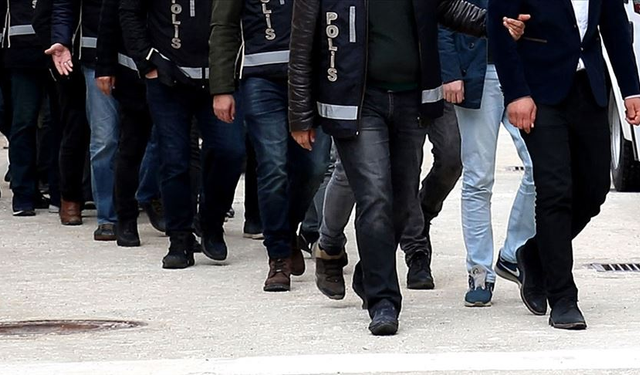Crown Prince of the Emirate of Abu Dhabi Mohamed bin Zayed al Nahyan (MBZ) was in Turkey on 24 November. After this visit, it was stated that a new era promising development has begun in the tense relations between the two countries that have been going on for years and it was emphasized that new horizons were formed for cooperation and joint work. So, what were the reasons for the tensions between Turkey and the UAE, and what has changed now?
UAE AND TURKEY ARE ALWAYS IN OPPOSITE FRONTS
Turkey and the UAE have been on opposite sides on many issues so far. The first of these is that while the UAE supported Sisi, who took over the administration with a coup in Egypt, Turkey fervently supported the overthrown Morsi administration. Abu Dhabi also took part in the military exercises of Cyprus and Greece in the Eastern Mediterranean and took its place against Turkey. The two countries stood at different points in the civil war in Libya. This difference continued in Syria, Yemen, and Somalia. While 3 Arab countries including the UAE decided to embargo Qatar, Turkey took a different front and supported Qatar. The normalization process initiated by the UAE with Israel was met with a reaction by Ankara. While diplomatic relations between the UAE and Israel gained momentum, Turkey accused the UAE of selling the "Palestinian cause".
The UAE's record is not also very clean in domestic politics. Especially after the failed coup attempt on 15 July in Turkey, the UAE was seriously accused of supporting coup perpetrators by Turkish authorities. Turkey requested a red notice for Mohammed Dahlan, one of Prince Nahyan's leading advisers, in 2020. Dahlan was charged with "financing the July 15 coup attempt and attempting to forcibly change the constitutional order". The last matter between the two countries was that Sedat Peker, who was alleged to be a leader of an organized crime organization, was in the UAE.
WHAT HAS CHANGED NOW?
With the Arab Spring, which started in 2011, triggering new confrontations in the region, Turkey and the UAE had taken part in the opposite fronts in many aspects. Today, the intentions of the two countries to reduce tension can be interpreted within the framework of their desire to reshape their foreign policies depending on the new conditions in the region. Is it possible, in this context, to say that the wind of the Arab Spring is now completely extinguished? According to some experts, instead of the religion-centered social movements that were intensely seen in the Arab Spring, a more local national-centered nationalism is emerging today.
In a conjuncture where the US withdrew from Afghanistan and reduced its relations with the region to some extent, the UAE administration seems to prefer to increase cooperation opportunities with other regional and global actors. In this context, the UAE improved its relations with Russia and China and felt the need to reconsider its tense relations with Turkey.
The concern that pushes the UAE to reconsider its relations with Turkey is the possibility of being isolated due to its aggressive stance in regional politics. Especially at a time when its relations with Saudi Arabia are not going well, Saudi Arabia's tendency to develop and normalize its relations with Iran, Qatar, and Turkey justifies the UAE's concerns about isolation. On the other hand, the UAE, which had problems in bilateral relations with Oman and Kuwait, had to lift the blockade against Qatar under the pressure of the USA.
In this context, it can be stated that the UAE has adopted an approach that aims to establish connections and cooperation with the region from Asia to the Middle East. What is more, according to some experts, the UAE has shifted to a zero-problem foreign policy attitude in which diplomacy is a priority rather than conflict. Its goal, in this sense, is to maintain regional stability.
MIGHT THE ECONOMY OPEN THIS DOOR?
It seems that normalizing relations with Turkey will not be easy for the UAE, which acts with the expectation of stability. Because Turkey and the UAE are still on the opposite front in areas such as Syria, Libya, Egypt, the energy struggle in the Mediterranean, and the matter on Muslim Brotherhood. And there's no sign that any of these issues will settle down between them soon. The only area of cooperation seems to be the economy. So, might the economy open this door?
An agreement has been reached on a work plan aimed at diversifying foreign trade and increasing the trade volume between the two countries. It is mentioned the steps of the UAE to establish an economy that is not based on oil in Turkey, as in other countries.
In addition, some factors such as the currency crisis in Turkey and the worsening of the economic situation make it easier for the UAE to enter the Turkish market with its existing economic power. In this respect, economic cooperation is quite important for Turkey as much as the UAE in terms of controlling the economic assets of Turkey, which has become cheaper by 30 percent due to the depreciation of the Turkish lira. According to the agreements signed between the two countries, the UAE will transfer 10 billion dollars to Turkey in the first stage. However, how much can the UAE contribute to Turkey’s "independence war" on an economic basis?












